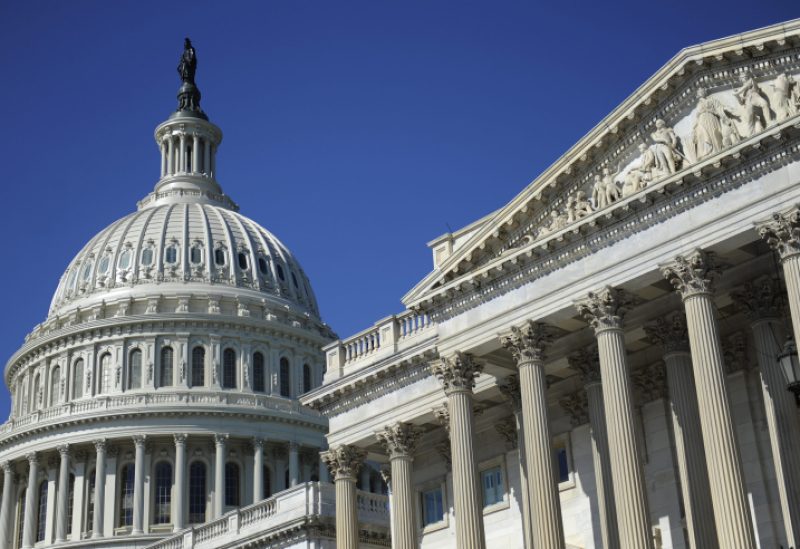
The U.S. Capitol dome and U.S. Senate (R) in Washington, August 2, 2011. The United States is poised to step back from the brink of economic disaster on Tuesday when a bitterly fought deal to cut the budget deficit is expected to clear its final hurdles in the U.S. Senate. REUTERS/Jonathan Ernst (UNITED STATES - Tags: POLITICS BUSINESS)
Although it isn’t clear how many initiatives will be funded, the US Senate on Thursday voted on the annual defense policy bill worth $858 billion which will now be sent to President Joe Biden for his signature. It allocates $817 billion specifically to the Department of Defense and exceeds Biden’s Pentagon budget by $45 billion. The bill also cancels a mandate for troops to receive the Covid vaccine.
It passed the upper chamber in an 83-11 vote and was approved by the House last week. The bill has guidelines on how federal dollars can be spent on the Pentagon, besides the US military and related programmes. The bill this year includes provision for giving aid to Ukraine in its fight against Russia and funds for Taiwan. It also authorises a 4.6 per cent pay raise for military service members and measures to address rising costs due to inflation.
Repealing the Covid vaccine mandate for the military follows a push for it by congressional Republicans. Expressing happiness at the decision, House GOP leader Kevin McCarthy said, “The end of President Biden’s military COVID vaccine mandate is a victory for our military and for common sense.”
If the bill is passed, this would be the 62nd consecutive year that a legislation will be enacted regarding military policy and increased Pentagon spending. It follows weeks of negotiations between key House and Senate lawmakers.
Besides, a short-term budget bill that extends federal funding at current levels until December 23, was also approved. It joins the House of Representatives to avert a shutdown of federal services. Senators voted 71-19 in favour of the bill and it will not be sent to Biden.
Congress now has another week to negotiate a longer-term spending deal covering through the end of fiscal 2023. The bill was a must-pass and the Congress had until midnight Friday to adopt a spending bill, barring which funding for federal services would have been cut and operations across the government would have come to a halt.
In case it hadn’t happened, a shutdown would have ensued, leading to furlough of hundreds of thousands of federal workers. A winter 2018-2019 shutdown, the longest in US history, even affected baggage screening at airports.